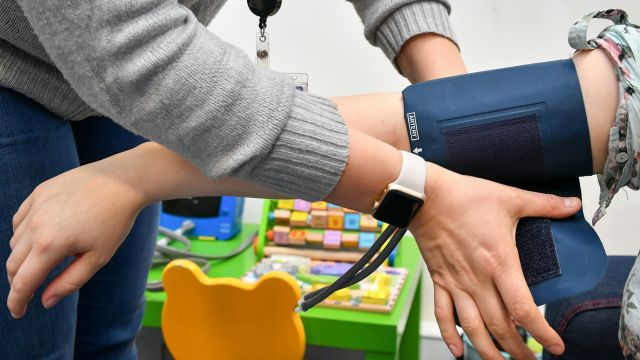The research addresses an “ongoing controversy” around such medications – known as antihypertensive drugs – and possible links to developing cancer, and should reassure people about their safety, the study author said.
Emma Copland, an epidemiologist at the University of Oxford, said the findings are of “paramount importance” due to the known benefit of such drugs in protecting against heart attacks and strokes.
The study, presented at the European Society of Cardiology Congress, is the largest on cancer outcomes in participants of randomised trials investigating antihypertensive medication, looking at around 260,000 people in 31 trials, researchers said.
Our results should reassure the public about the safety of antihypertensive drugs with respect to cancer
Investigators of all the trials were asked for information on which participants developed cancer and those behind the study said much of the information has not been published before, making this analysis the most detailed yet.
Researchers estimated the effect of five antihypertensive drug – angiotensin-converting enzyme (ACE) inhibitors, angiotensin II receptor blockers (ARBs), beta blockers, calcium channel blockers (CCBs), and diuretics – on the risk of developing any type of cancer, of dying from cancer, and of developing breast, colorectal, lung, prostate and skin cancers.
They also looked at whether there were differences due to age, gender, body size, smoking status and previous use of antihypertensive drugs.
During an average of four years, there were around 15,000 new diagnoses of cancer but researchers said they found no evidence that the use of any antihypertensive drug class increased the risk of cancer and said the finding was consistent regardless of the different factors such as age.
The scientists said there was also no evidence that any type of antihypertensive medication had an effect on the probability of developing breast, colorectal, lung, prostate or skin cancer.
They added that there was no indication that the risk of cancer increased the longer the medication was taken, with participants followed throughout the course of each trial.
Ms Copland said: “Our results should reassure the public about the safety of antihypertensive drugs with respect to cancer, which is of paramount importance given their proven benefit for protecting against heart attacks and strokes.
“Our study has addressed an ongoing controversy about whether antihypertensive medication increases the risk of developing cancer.
“We used the largest individual-level randomised evidence on antihypertensive medication to date and provide evidence for the safety of blood pressure lowering drugs in relation to cancer.”
Professor James Leiper, associate medical director at the British Heart Foundation, said: “This very large study has demonstrated that blood pressure lowering drugs that help to prevent a heart attack or stroke do not increase the risk of developing cancer.
“This study provides further reassurance that their use is safe. It’s important that patients continue to take their blood pressure medication as prescribed to protect their heart and blood vessels.”







